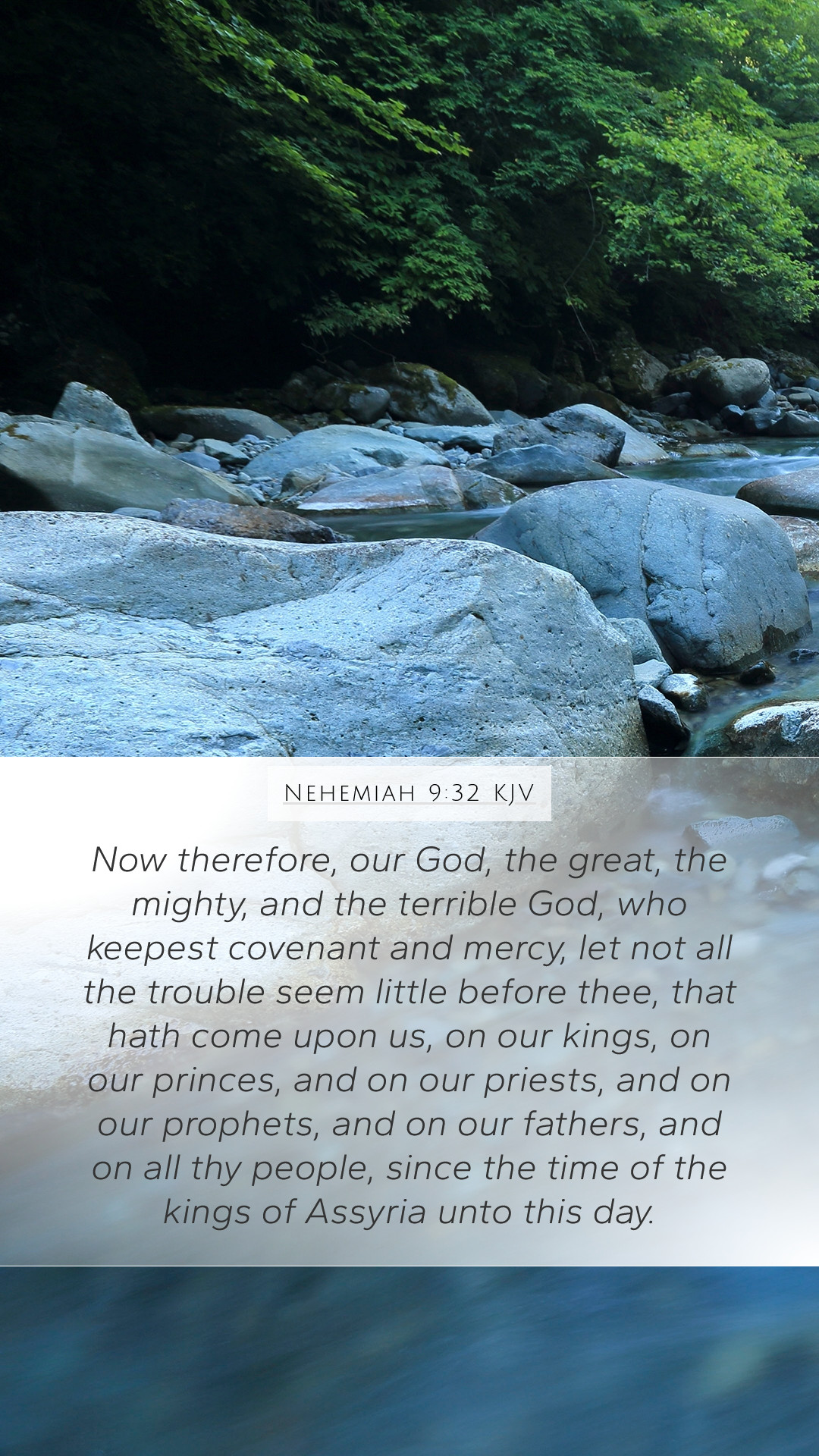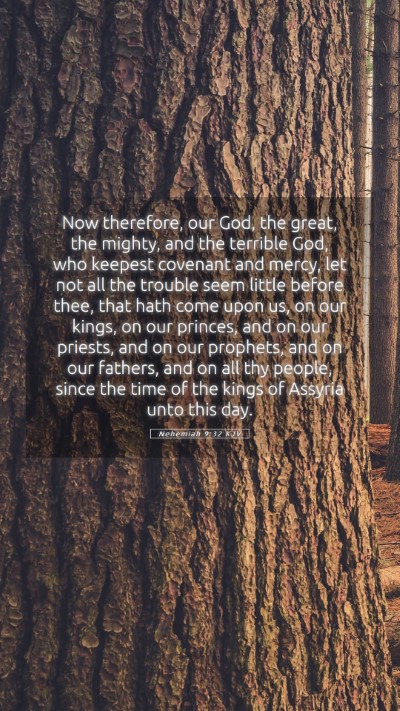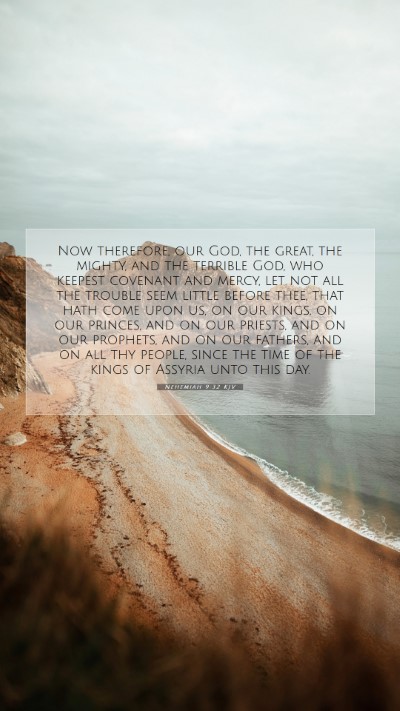Bible Verse Commentary: Nehemiah 9:32
Verse: "Now therefore, our God, the great, the mighty, and the terrible God, who keepest covenant and mercy, let not all the trouble seem little before thee, that hath come upon us, on our kings, on our princes, and on our priests, and on our prophets, and on our fathers, and on all thy people, since the time of the kings of Assyria unto this day." (Nehemiah 9:32, KJV)
Contextual Overview: The verse is part of a prayer of confession and remembrance shared by the Israelites as they acknowledged their history and God’s faithfulness amidst their sufferings. Nehemiah and the people reflect on God's great power and mercy and their own failures to uphold the covenant.
Insights from Public Domain Commentaries
This comprehensive analysis encloses multiple perspectives from respected Bible scholars, which help to elucidate the rich meanings found in Nehemiah 9:32.
-
Matthew Henry's Commentary
Henry emphasizes the greatness of God, highlighting His might and terrible nature in relation to His covenant with Israel. He points to the need for the people to recognize their historical troubles not as a trivial matter but as significant difficulties shaped by their own sin and God's justice. The reference to "kings of Assyria" elucidates God's overarching sovereignty during times of distress.
-
Albert Barnes' Notes on the Bible
Barnes interprets this verse as an appeal to God's character. He notes that the Israelites are acknowledging their suffering and imploring God not to take their strife lightly. This outpouring reflects the deep sense of their shared history and collective responsibility. He points out Israel's appeal to God's mercy as a means of reconciliation.
-
Adam Clarke's Commentary
Clarke sheds light on the moral weight of leadership in Israel, also mentioning the burdens carried by the kings, princes, and priests during troubled times. He reflects on human imperfection and the consistent call for divine mercy amid the consequences of sin. Clarke emphasizes that the Israelites recognize their need for a powerful and merciful God as they lay bare their history before Him.
Key Themes and Applications
Nehemiah 9:32 serves as a poignant reminder about the nature of God and human reliance on Him in trials. Here are several key themes that emerge from this verse:
- God's Greatness: The prayer recognizes God as "great, mighty, and terrible," illustrating His supreme authority over creation and His ability to bring restoration.
- Covenant Relation: It underscores the importance of keeping covenant with God, which involves commitment and fidelity from the people.
- Collective Responsibility: There is a shared sense of guilt among the leaders and the people reflecting the communal nature of sin and the necessity for collective repentance.
- Historical Reflection: The acknowledgment of past troubles offers lessons for present faithfulness, encouraging believers to recognize God's hand in salvation history.
- Seeking Mercy: The emphasis on mercy highlights humanity's constant need for grace, positioning God as a gracious redeemer even in times of judgment.
Cross References
This verse resonates with several other passages that explore similar themes of God's might and mercy:
- Deuteronomy 7:9: Affirming God's faithfulness to His covenant.
- Psalms 145:8-9: Describing God’s compassion and grace.
- Isaiah 63:7: Reflecting on the lovingkindness of the Lord.
Conclusion
Nehemiah 9:32 stands as a powerful plea to God, revealing the depth of the Israelites' anguish and their desire for His intervention. Understanding this verse involves recognizing the attributes of God and the necessity for humility and repentance amongst His people. Engaging with this scripture not only fosters personal spiritual growth but also enriches group discussions in Bible study groups, provides material for online Bible study, and enhances the Bible study resources available to believers.


